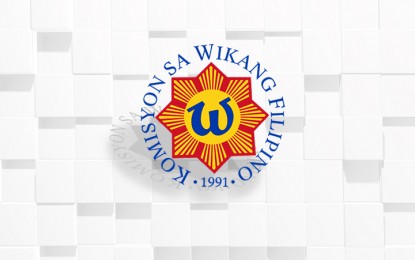
MANILA – The Komisyon sa Wikang Filipino (KWF) is preparing to intensify its documentation to help better protect and preserve indigenous languages nationwide.
KWF will hold on Monday (Feb. 22) a free webinar covering the basics of indigenous language documentation, noted the agency's translator Kirt John Segui who is in charge of the event.
He said researchers, students, teachers and others interested in language and culture can participate in the webinar.
"The webinar's participants will be among our potential language documentation partners," he said.
According to Segui, KWF decided to hold the webinar as the agency lacks manpower to document the country's estimated 130 indigenous languages.
Only about 38 of these languages have documentation so far, he noted.
KWF provided grants to partners who helped the agency document the languages, he said.
There is urgency in documenting indigenous Philippine languages as Segui said 40 of these are endangered already and facing possible extinction.
He noted social, cultural, and political factors are affecting preservation, use and development of indigenous languages, causing some of these to become endangered.
Segui said the webinar is among the activities for this year's observance of the annual International Mother Language Day (IMLD) on Feb. 21.
It is also the first in the Lagsik-Wika series of three documentation-related webinars that KWF plans to conduct this year to further promote and preserve indigenous Philippine languages, he continued.
'Lagsik' is a Sebwano word that means 'revitalize,' noted KWF.
Segui said KWF already formally invited various institutions to join the webinar this month.
Others interested in the webinar can join by registering at https://bit.ly/LagsikWika.
KWF will issue e-certificates to the webinar's active participants, he noted.
The public can contact KWF regarding other details of the webinar.
In November 1999, the General Conference of United Nations Educational, Scientific and Cultural Organization (UNESCO) proclaimed IMLD to promote linguistic and cultural diversity and multilingualism.
UNESCO believes education based on the first language or mother tongue must begin during a child's early years.
"A language is endangered when its speakers cease to use it, use it in fewer and fewer domains, use fewer of its registers and speaking styles, and/or stop passing it on to the next generation," UNESCO also said. (PNA)
